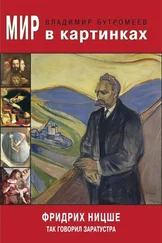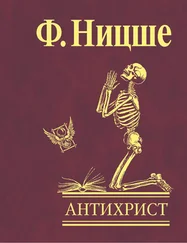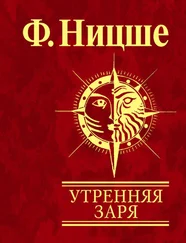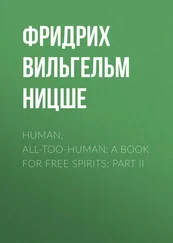Фридрих Ницше - Thoughts Out of Season, Part II
Здесь есть возможность читать онлайн «Фридрих Ницше - Thoughts Out of Season, Part II» — ознакомительный отрывок электронной книги совершенно бесплатно, а после прочтения отрывка купить полную версию. В некоторых случаях можно слушать аудио, скачать через торрент в формате fb2 и присутствует краткое содержание. Жанр: Философия, literature_19, foreign_antique, foreign_prose, на английском языке. Описание произведения, (предисловие) а так же отзывы посетителей доступны на портале библиотеки ЛибКат.
- Название:Thoughts Out of Season, Part II
- Автор:
- Жанр:
- Год:неизвестен
- ISBN:нет данных
- Рейтинг книги:3 / 5. Голосов: 1
-
Избранное:Добавить в избранное
- Отзывы:
-
Ваша оценка:
- 60
- 1
- 2
- 3
- 4
- 5
Thoughts Out of Season, Part II: краткое содержание, описание и аннотация
Предлагаем к чтению аннотацию, описание, краткое содержание или предисловие (зависит от того, что написал сам автор книги «Thoughts Out of Season, Part II»). Если вы не нашли необходимую информацию о книге — напишите в комментариях, мы постараемся отыскать её.
Thoughts Out of Season, Part II — читать онлайн ознакомительный отрывок
Ниже представлен текст книги, разбитый по страницам. Система сохранения места последней прочитанной страницы, позволяет с удобством читать онлайн бесплатно книгу «Thoughts Out of Season, Part II», без необходимости каждый раз заново искать на чём Вы остановились. Поставьте закладку, и сможете в любой момент перейти на страницу, на которой закончили чтение.
Интервал:
Закладка:
But the fiercest battle is fought round the demand for greatness to be eternal. Every other living thing cries no. “Away with the monuments,” is the watch-word. Dull custom fills all the chambers of the world with its meanness, and rises in thick vapour round anything that is great, barring its way to immortality, blinding and stifling it. And the way passes through mortal brains! Through the brains of sick and short-lived beasts that ever rise to the surface to breathe, and painfully keep off annihilation for a little space. For they wish but one thing: to live at any cost. Who would ever dream of any “monumental history” among them, the hard torch-race that alone gives life to greatness? And yet there are always men awakening, who are strengthened and made happy by gazing on past greatness, as though man's life were a lordly thing, and the fairest fruit of this bitter tree were the knowledge that there was once a man who walked sternly and proudly through this world, another who had pity and loving-kindness, another who lived in contemplation, – but all leaving one truth behind them, that his life is the fairest who thinks least about life. The common man snatches greedily at this little span, with tragic earnestness, but they, on their way to monumental history and immortality, knew how to greet it with Olympic laughter, or at least with a lofty scorn; and they went down to their graves in irony – for what had they to bury? Only what they had always treated as dross, refuse, and vanity, and which now falls into its true home of oblivion, after being so long the sport of their contempt. One thing will live, the sign-manual of their inmost being, the rare flash of light, the deed, the creation; because posterity cannot do without it. In this spiritualised form fame is something more than the sweetest morsel for our egoism, in Schopenhauer's phrase: it is the belief in the oneness and continuity of the great in every age, and a protest against the change and decay of generations.
What is the use to the modern man of this “monumental” contemplation of the past, this preoccupation with the rare and classic? It is the knowledge that the great thing existed and was therefore possible, and so may be possible again. He is heartened on his way; for his doubt in weaker moments, whether his desire be not for the impossible, is struck aside. Suppose one believe that no more than a hundred men, brought up in the new spirit, efficient and productive, were needed to give the deathblow to the present fashion of education in Germany; he will gather strength from the remembrance that the culture of the Renaissance was raised on the shoulders of such another band of a hundred men.
And yet if we really wish to learn something from an example, how vague and elusive do we find the comparison! If it is to give us strength, many of the differences must be neglected, the individuality of the past forced into a general formula and all the sharp angles broken off for the sake of correspondence. Ultimately, of course, what was once possible can only become possible a second time on the Pythagorean theory, that when the heavenly bodies are in the same position again, the events on earth are reproduced to the smallest detail; so when the stars have a certain relation, a Stoic and an Epicurean will form a conspiracy to murder Cæsar, and a different conjunction will show another Columbus discovering America. Only if the earth always began its drama again after the fifth act, and it were certain that the same interaction of motives, the same deus ex machina , the same catastrophe would occur at particular intervals, could the man of action venture to look for the whole archetypic truth in monumental history, to see each fact fully set out in its uniqueness: it would not probably be before the astronomers became astrologers again. Till then monumental history will never be able to have complete truth; it will always bring together things that are incompatible and generalise them into compatibility, will always weaken the differences of motive and occasion. Its object is to depict effects at the expense of the causes – “monumentally,” that is, as examples for imitation: it turns aside, as far as it may, from reasons, and might be called with far less exaggeration a collection of “effects in themselves,” than of events that will have an effect on all ages. The events of war or religion cherished in our popular celebrations are such “effects in themselves”; it is these that will not let ambition sleep, and lie like amulets on the bolder hearts – not the real historical nexus of cause and effect, which, rightly understood, would only prove that nothing quite similar could ever be cast again from the dice-boxes of fate and the future.
As long as the soul of history is found in the great impulse that it gives to a powerful spirit, as long as the past is principally used as a model for imitation, it is always in danger of being a little altered and touched up, and brought nearer to fiction. Sometimes there is no possible distinction between a “monumental” past and a mythical romance, as the same motives for action can be gathered from the one world as the other. If this monumental method of surveying the past dominate the others, – the antiquarian and the critical, – the past itself suffers wrong. Whole tracts of it are forgotten and despised; they flow away like a dark unbroken river, with only a few gaily coloured islands of fact rising above it. There is something beyond nature in the rare figures that become visible, like the golden hips that his disciples attributed to Pythagoras. Monumental history lives by false analogy; it entices the brave to rashness, and the enthusiastic to fanaticism by its tempting comparisons. Imagine this history in the hands – and the head – of a gifted egoist or an inspired scoundrel; kingdoms will be overthrown, princes murdered, war and revolution let loose, and the number of “effects in themselves” – in other words, effects without sufficient cause – increased. So much for the harm done by monumental history to the powerful men of action, be they good or bad; but what if the weak and the inactive take it as their servant – or their master!
Consider the simplest and commonest example, the inartistic or half artistic natures whom a monumental history provides with sword and buckler. They will use the weapons against their hereditary enemies, the great artistic spirits, who alone can learn from that history the one real lesson, how to live, and embody what they have learnt in noble action. Their way is obstructed, their free air darkened by the idolatrous – and conscientious – dance round the half understood monument of a great past. “See, that is the true and real art,” we seem to hear: “of what use are these aspiring little people of to-day?” The dancing crowd has apparently the monopoly of “good taste”: for the creator is always at a disadvantage compared with the mere looker-on, who never put a hand to the work; just as the arm-chair politician has ever had more wisdom and foresight than the actual statesman. But if the custom of democratic suffrage and numerical majorities be transferred to the realm of art, and the artist put on his defence before the court of æsthetic dilettanti, you may take your oath on his condemnation; although, or rather because, his judges had proclaimed solemnly the canon of “monumental art,” the art that has “had an effect on all ages,” according to the official definition. In their eyes no need nor inclination nor historical authority is in favour of the art which is not yet “monumental” because it is contemporary. Their instinct tells them that art can be slain by art: the monumental will never be reproduced, and the weight of its authority is invoked from the past to make it sure. They are connoisseurs of art, primarily because they wish to kill art; they pretend to be physicians, when their real idea is to dabble in poisons. They develop their tastes to a point of perversion, that they may be able to show a reason for continually rejecting all the nourishing artistic fare that is offered them. For they do not want greatness, to arise: their method is to say, “See, the great thing is already here!” In reality they care as little about the great thing that is already here, as that which is about to arise: their lives are evidence of that. Monumental history is the cloak under which their hatred of present power and greatness masquerades as an extreme admiration of the past: the real meaning of this way of viewing history is disguised as its opposite; whether they wish it or no, they are acting as though their motto were, “let the dead bury the – living.”
Читать дальшеИнтервал:
Закладка:
Похожие книги на «Thoughts Out of Season, Part II»
Представляем Вашему вниманию похожие книги на «Thoughts Out of Season, Part II» списком для выбора. Мы отобрали схожую по названию и смыслу литературу в надежде предоставить читателям больше вариантов отыскать новые, интересные, ещё непрочитанные произведения.
Обсуждение, отзывы о книге «Thoughts Out of Season, Part II» и просто собственные мнения читателей. Оставьте ваши комментарии, напишите, что Вы думаете о произведении, его смысле или главных героях. Укажите что конкретно понравилось, а что нет, и почему Вы так считаете.
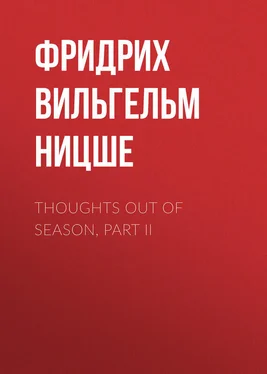

![Фридрих Ницше - Песни Заратустры [сборник]](/books/28216/fridrih-nicshe-pesni-zaratustry-sbornik-thumb.webp)
